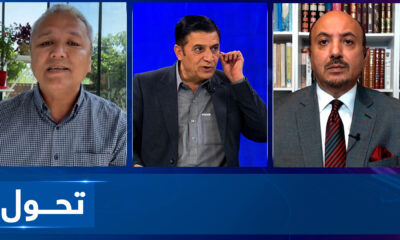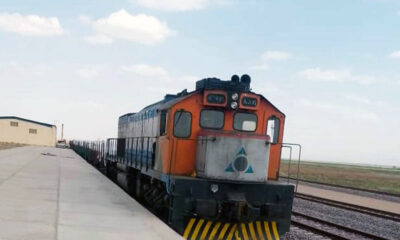Business
Motorists concerned about rising fuel prices in Afghanistan
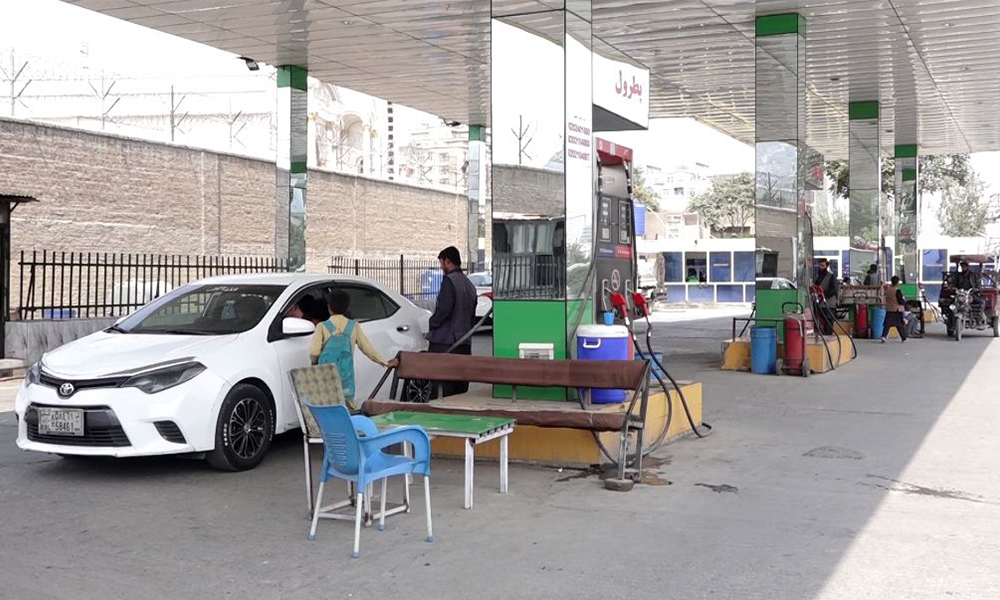
Afghans have raised concerns over the increase in fuel prices on the local market, despite the resumption of fuel imports from neighboring countries.
Officials from Balkh’s Chamber of Commerce and Investment said last week that imports of fuel and gas through Hairatan and Aqina ports have resumed.
Motorists have however called on the Islamic Emirate to monitor and control market prices.
According to them, petrol currently costs 65 AFN per liter; diesel is 56 AFN; and gas costs between 72 and 80 AFN per kilogram in Kabul.
The Council of Fuel Merchants, however, says that limited access to cash and banking transactions, along with a monopoly of the industry by a few companies, are the key reasons for rising fuel prices.
Mohammad Asif, a member of the organization, stated: “If the Islamic Emirate wants to control the issue, they should control it at the [border] customs. Although [import] tariffs have been cut by 50%, prices are still high due to a monopoly of imports by some companies. They (merchants) set prices as they wish.”
Khan Jan Alokozay, Deputy Head of the Chamber of Commerce and Investment, stated: “The problem is that wholesalers have not set the market price, and when retailers distribute the goods to other areas that causes an increase in rates.”
People also called on property owners to reduce rental rates of houses in Kabul city, amid a looming economic crisis in Afghanistan.
Landlords, however, stated that the average rental has dropped by 50% compared to last year.
Business
Afghanistan starts exporting via railway to Turkey

The Ministry of Interior says that Afghanistan has started exporting goods to Turkey via the Herat-Khaf railway line.
In a post on X, the ministry said: “Afghanistan’s exports to Turkey started in a calm atmosphere through the Herat-Khaf railway line.”
The ministry added that one train will run daily for a month and then two trains will run daily.
According to the ministry, the security of Khaf-Herat railway line is provided by the guards of the National Public Protection Agency.
Khaf-Herat railway project not only connects Iran and Afghanistan by rail, but also completes a 2,000-kilometer route along the east-west rail corridor from China, through Uzbekistan, to Afghanistan, to Iran, and on to Turkey and Europe.
As a landlocked country, this railway network will provide a safe route to connect with Europe via Iran’s railway network and Iran’s southern ports.
This railway line is strategic for trade between Iran and Afghanistan and will allow six million tons of goods to be sent between the two countries.
Business
Afghanistan, Kazakhstan to hold joint expo in Kabul
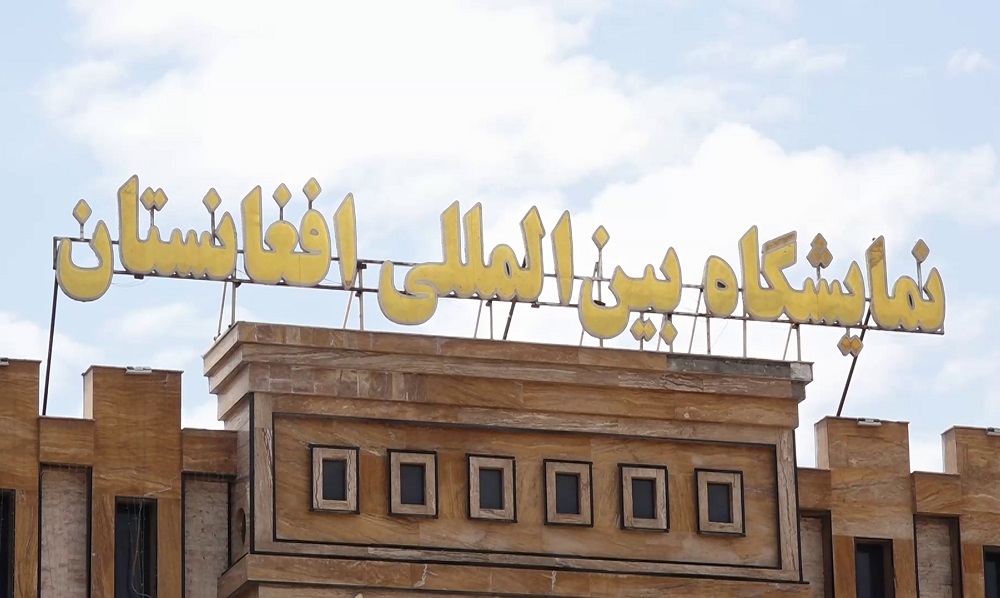
A joint expo between Afghanistan and Kazakhstan will be held in Kabul in the next four days, officials said on Sunday.
Officials of the Ministry of Industry and Commerce said that the two-day expo will be held for the purpose of expanding and strengthening trade relations between the two countries.
“This expo will be held as a follow-up of the Kazakh-Afghan international expo, which was held in the city of Astana, Kazakhstan, with the participation of a large delegation of the government and the private sector of the Islamic Emirate of Afghanistan,” Abdulsalam Javad Akhundzadeh, the spokesman of the Ministry of Industry and Commerce, said.
“At this expo, domestic products from different sectors of Afghanistan and the Republic of Kazakhstan will be put on display for two days.”
According to officials, 40 large Kazakh companies, and 40 large Afghan companies will exhibit their products.
Mohammad Saber Latifi, head of the Afghanistan International Expo Center, said that fruits, minerals and commercial services will be displayed at the expo.
During the expo, various memorandums of understanding for the trade of goods are also expected to be signed by companies.
Business
Afghanistan’s economic prospects are bleak: World Bank

The absence of GDP growth coupled with declining external financing avenues for off-budget expenditures paint a bleak picture of Afghanistan’s economic prospects, the World Bank said.
After a severe 20.7 percent GDP contraction in 2021, the Afghan economy contracted further by 6.2 percent in 2022, the bank said in a report.
“While Afghanistan’s agricultural and subsistence economy, including illicit opium production, provided some resilience in rural areas, higher prices, reduced demand, lower employment, and disruptions to services had severe impacts across the country,” it said.
The proportion of households that did not have enough income to meet basic food needs more than doubled from 16 percent to 36 percent in this period, according to the bank.
In the context of deep concerns about the policies of the Islamic Emirate of Afghanistan (IEA), including restrictions imposed on women and girls, the international community, including the World Bank, recalibrated its approach to supporting Afghanistan: first to providing humanitarian support and then to providing off-budget support for basic service delivery and livelihoods.
However, IEA moved to restore domestic revenues, which reached $2.2 billion or 15 percent of GDP in 2022. “Nevertheless, overall economic activity remained depressed, unemployment stayed high, and the banking sector was dysfunctional due to constraints on international transfers and concerns about liquidity and solvency.”
World Bank said that Afghanistan’s economic outlook remains uncertain, with the threat of stagnation looming large until at least 2025. “This economic stagnation will deepen poverty and unemployment, with job opportunities expected to decrease and food insecurity expected to increase.”
The bank noted that for a sustainable future, Afghanistan needs to focus on its comparative advantages, particularly in the agricultural and extractive sectors. Agriculture could be a key driver of growth and poverty reduction, with the potential to create jobs, it added.
-
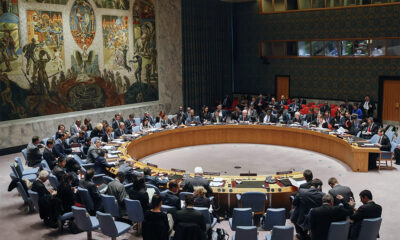
 World5 days ago
World5 days agoUN Security Council to vote Friday on Palestinian UN membership
-

 Business4 days ago
Business4 days agoCommerce ministry inks 10 MoUs to boost development of small and medium-sized businesses
-

 Sport4 days ago
Sport4 days agoRashid Khan threatens BBL pullout after Australia postpones Afghanistan T20I series
-

 Latest News5 days ago
Latest News5 days ago2023 marred by ‘tremendous challenges’ for Afghanistan
-

 Sport5 days ago
Sport5 days agoAfghanistan loses 3-1 to Iran in Futsal Asian Cup match
-

 Latest News4 days ago
Latest News4 days agoOver 6,000 acres of land cleared of poppies in Badakhshan
-

 Health5 days ago
Health5 days agoBalkh health officials report sharp increase in number of cancer patients
-

 Latest News4 days ago
Latest News4 days agoMSF ‘deeply concerned’ over new phase of deportations of Afghans from Pakistan








